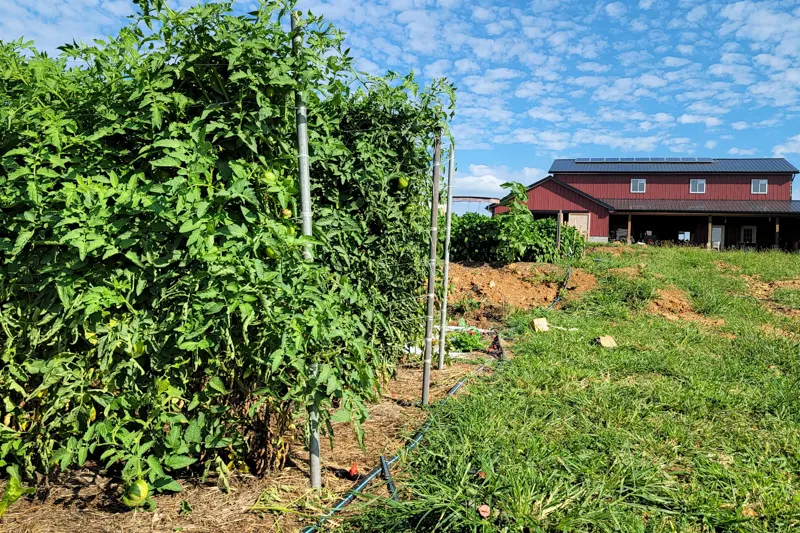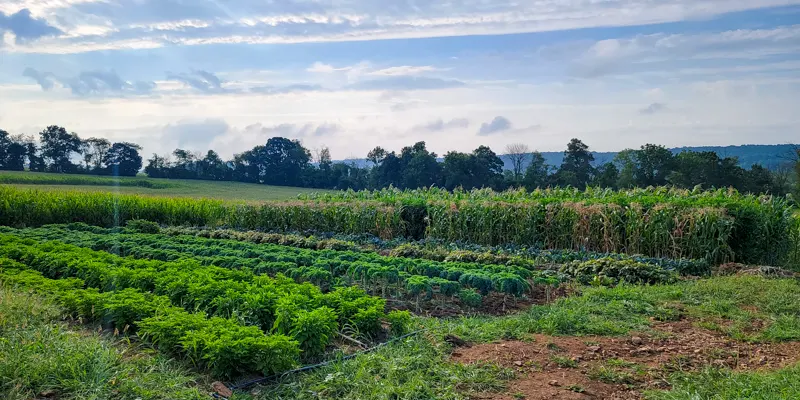Building a Local Food System
We’re not just farmers’ customers, we’re their partners.
The origins of Philly Foodworks can be traced back to a phone call Dylan Baird (Philly Foodworks’ co-founder/CEO) had with Reuben Riehl in 2012. The two hit it off, discussing everything from philosophy to the struggles of running a small farm.

Dylan, an urban farmer in West Philadelphia at the time, struggled to yield enough crops to meet demand. Reuben, an Amish farmer in Chester County, produced plenty of fruits and vegetables but could not find enough customers and lacked the staff, time, and resources to travel to Philly’s open-air markets.
Soon after his conversation with Reuben, Dylan and his business partners founded Philly Foodworks in an effort to help farmers in similar situations get their sustainably grown produce in the Philly-area consumer market. Since then, Philly Foodworks has become a leader in our local food system, focused not only on selling the delicious fruits, veggies, meats, cheeses, and other food products our region has to offer, but also on building partnerships with growers and producers to help them thrive for years to come.
Fair prices & efficient transportation
Unlike many traditional distributors that demand exclusivity and leverage competition to get the lowest-possible prices, we keep farmers’ well-being at the center of our business model. We allow our growers and producers to sell to whomever they want and encourage them to do what is best for their businesses.

When our company was newly formed, Philly Foodworks and Riehl Family Farms worked together to create the Honey Brook Harvest Collective, an aggregation hub based on the Riehl Family Farm, which handles the cleaning, packaging, and distribution of fresh-grown produce from 12 farms in the Honey Brook area. By consolidating these tasks that require a lot of overhead (coolers, trucks, packing equipment, etc.), the Honey Brook Harvest Collective has opened up opportunities for small farmers to sell their goods in and around Philadelphia.
We have since established a network of aggregation hubs where multiple farmers in certain areas can deliver products to be transported in consolidated deliveries to our warehouse in Philadelphia. And we cover the cost of trucking! This not only reduces the carbon footprint and allows smaller farmers to access the city market, but it also allows farmers to keep more of their profits to invest back in their business.
Crop planning and collaboration
In 2018, we launched a project aimed at increasing the diversity of our products and locking in seasonal orders far in advance. The result was a giant spreadsheet detailing the specific crops each of our farmers grow, roughly how much they will be planting for upcoming seasons, and the approximate time they plan to harvest. When he noted overlapping crops among different farms, our produce buyer, Loren, collaborated with the farmers to choose different varieties or later planting times so Philly Foodworks won’t have to turn away any of our farmers’ crops due to excess supply, and so excess crops won’t go to waste in the fields due to lack of demand.
As a bonus, this also means that we’ll have an even wider range of produce in the coming seasons, as well as longer availability of items due to staggered plantings among different farms. For the farmers, it means that they have a guaranteed market for their products and the support (both financial and strategic) to try new varieties—like Black Nebula carrots and Sichuan Red Beauty radishes, for instance. We are currently working with 10 different farmers and farmer collectives, and we’re in talks with others who will hopefully join Philly Foodworks soon.
